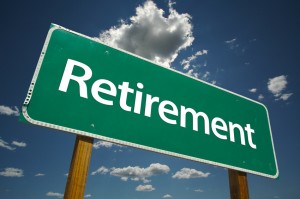Applying for Social Security Benefits at the Right Time
Applying for Social Security benefits at the “right time” has always been an important personal finance strategy. Estimates indicate that many American do not apply for Social Security at the right time. Many people apply for early Social Security retirement benefits leaving about $120,000 of lifetime benefits on the table. Each year this adds up to $25 billion that could have been collected by retirees. This prompted the Government Accounting Office (www.gao.gov) to gain a better understanding of the circumstances faced by those who claim early Social Security retirement benefits.
The GAO Study provides several new insights about what makes people apply for early retirement Social Security benefits:
- Physically-demanding blue collar jobs may influence when someone claims Social Security benefits. According to the recent GAO study (http://www.gao.gov/products/GAO-14-311) individuals in physically-demanding blue collar jobs were 55 percent more likely to claim benefits prior to full retirement age (FRA) compared to those in all other occupations after controlling for other factors. See Figure 1.0 for details.
- Individuals who are out of the workforce for an extended time period of time or had longer work histories often take early Social Security retirement benefits. According to the GAO study (http://www.gao.gov/products/GAO-14-311) people who are out of the work force for a prolonged time, had long work histories or expected a shorter longevity (such as not living past age 75) are likely to claim Social Security benefits early.
The GAO study goes on to investigate what makes individuals apply late for Social Security retirement benefits
- Those who claim delayed retirement credits (DRCs). According to the GAO (http://www.gao.gov/products/GAO-14-311) people who wait to claim Social Security retirement benefits tend to have a higher income (about 45 percent after claiming benefits) than those who claimed early, and 33 percent higher at age 72. Additionally, for both early and delayed claimants, Social Security benefits accounted for an increasing share of total income as they aged.
- How the Affordable Care Act affects early retirees: According to the GAO study (http://www.gao.gov/products/GAO-14-311) “In 2014, some early claimers, especially those without access to health coverage, may benefit from certain provisions of the Patient Protection and Affordable Care Act (PPACA) intended to improve the availability and affordability of health coverage. GAO estimates that nearly a million early claimers did not have government or employer-sponsored health insurance before 2014. Of these, 14 percent may be newly eligible for Medicaid in 2014 due to expansion in 25 states and the District of Columbia and 58 percent could be eligible for tax credits that reduce the premiums for coverage purchased through the new health insurance exchanges. However, GAO estimates that 10 percent of these early claimers had incomes below the federal poverty level but lived in states that did not expand Medicaid and had incomes too low for federal exchange tax credits.”
To sum it up, those that take early Social Security retirement often need Social Security to supplement their income due being out of the work force for an extended period of time, physically unable to keep up the work tempo or faced with longevity issues. One a positive note, the Affordable Care Act allows individuals to take early retirement with greater health security. For those in good health and / in occupations that allow them to work until 70, they will gain a 32 percent increase in the amount they would have received if they had retired at FRA. (Compared to a 25 percent decrease in the FRA benefit, if the claimant takes early retirement at age 62.) There is one thing that is common to early, FRA and delayed Social Security retirees, as these individuals increase in age Social Security retirement benefits will account for an increasing share of their total income.


